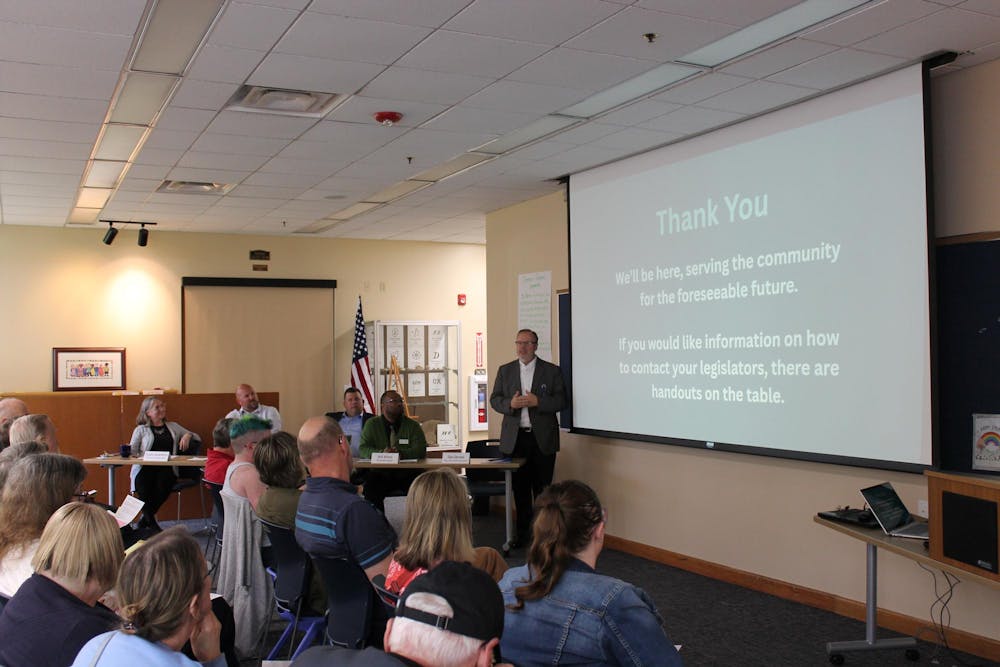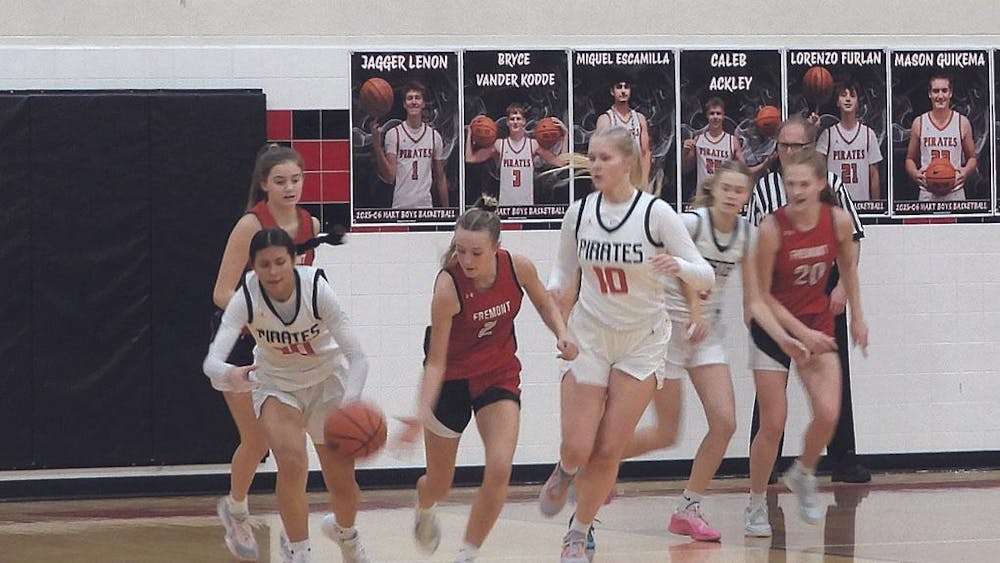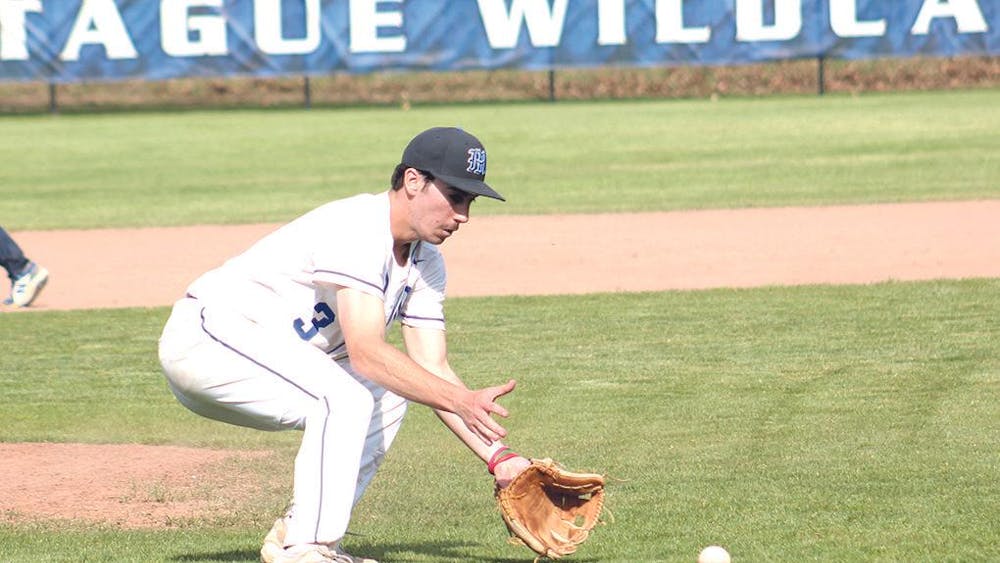WHITEHALL — The group Common Ground Community hosted an event at the White Lake Community Library Tuesday evening, inviting five directors of various area services who receive public funding to come and share what they know about possible federal spending cuts, and what of their services may or may not be impacted should that funding be removed.
Common Ground Community is a recent creation in the area. The mission statement, summarized, is “to foster an inclusive and understanding community in the White Lake area through education, dialogue, and mutual support.” The group’s goal is to foster community across various differences and divisions, and their intention is to start with open communication.
Each speaker had 10 minutes to present their organizations, inform the attendees about what portion of their funding is backed by the federal government, and explain information they have about potential impacts, if available. With widespread confusion circulating through both mainstream and social media, community members hoped to present the facts to their neighbors.
Though the library as an entity did not support or endorse the group and its event, the library’s director, Virginia DeMumbrum, was one of the featured speakers. She explained the vast majority of the library’s funding, like many other district libraries throughout the country, is local. Federal funding is applied through the Institution of Museum and Library Services, which goes directly to state libraries across the country. In turn, the Library of Michigan grants district libraries $250,000 for subscriptions to databases and catalogs, digitization services, and training programs. These are the sorts of services that could be lost should that federal funding not continue. However, DeMumbrum tried to assuage patrons' fears, saying the library and its collection are not going anywhere.
Will Wilson is the CEO of the Disability Network, a local organization which provides services to citizens of Newago, Muskegon, Oceana, Lake, and Mason counties who, whether through advanced age or disability, cannot live fully independently. In Muskegon County, 15.6% of the population fit that description.
Primarily, the Disability Network helps to provide transportation, especially in rural areas where public transportation is not available. One-third of its funding comes from the federal government, and while Wilson informed the audience there are no funding cuts to date, there is the concern that potential cuts to Medicare and Medicaid may make people more reliant on the Disability Network's services, which may see services scaled back to accommodate such an influx.
The other three speakers - CJ Van Wieren, Jeff Johnson, and Dan Gorman - are connected with the Whitehall and Montague school districts. Van Wieren and Johnson are the superintendents of the respective districts, and Gorman oversees the food services which provide much of Muskegon County’s schools’ free breakfasts and lunches.
Van Wieren and Johnson broke down the different avenues of funding - from taxes, milages, bonds, state, and federal funding - and what each of the different avenues contribute to the operation of the schools. In regards to federal funding, the two “prongs” of funding come from Title I, which supports low-income students and districts, and the Individuals with Disabilities Education Act, which supports special education programs nationwide.
As of yet, Van Wieren and Johnson are in the position of many school districts, which are in a “wait and see” period in regards to how federal funding may change. They said districts might not see any impacts until the 2025-2026 school year.
Gorman explained how 70% of the county's food service funding comes from the state and 30% from the federal government. That being said, $30 million has already been cut from federal programs which provide schools and pantries with locally sourced food.
For Dan Gorman’s services, this reflects about $31,000 in his budget, judging by what he received from these programs last year. While this does not mean free public school meals will go away, the food provided may not be locally sourced and fresh. Gorman assured the audience the growing teenage connoisseur can tell the difference between freshly cut pineapple and Dole’s fruit cups.
The final intention of the evening was for community members to ask their service providers what they can do to help. Requests included building relationships, being kind to your neighbors, being a good influence on children in your community, volunteering, contacting your representatives and legislatures and sharing stories. One thing that every speaker had in common at the forum was that almost everything is uncertain, contradictory news comes in every week, and they are working with the best information available, They all agreed the best and surest thing the community can do is come together, stay positive, and support those who support local people.













